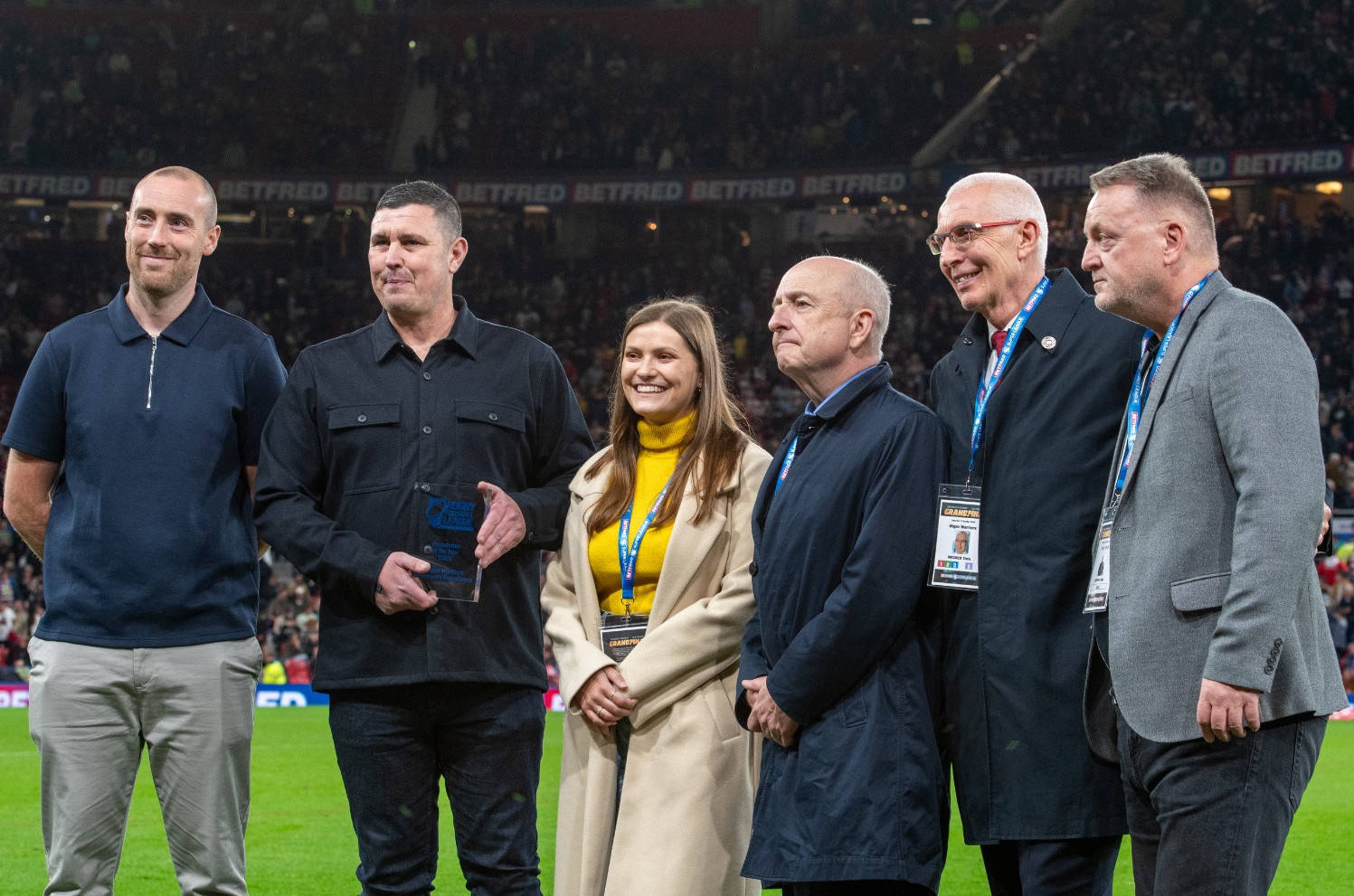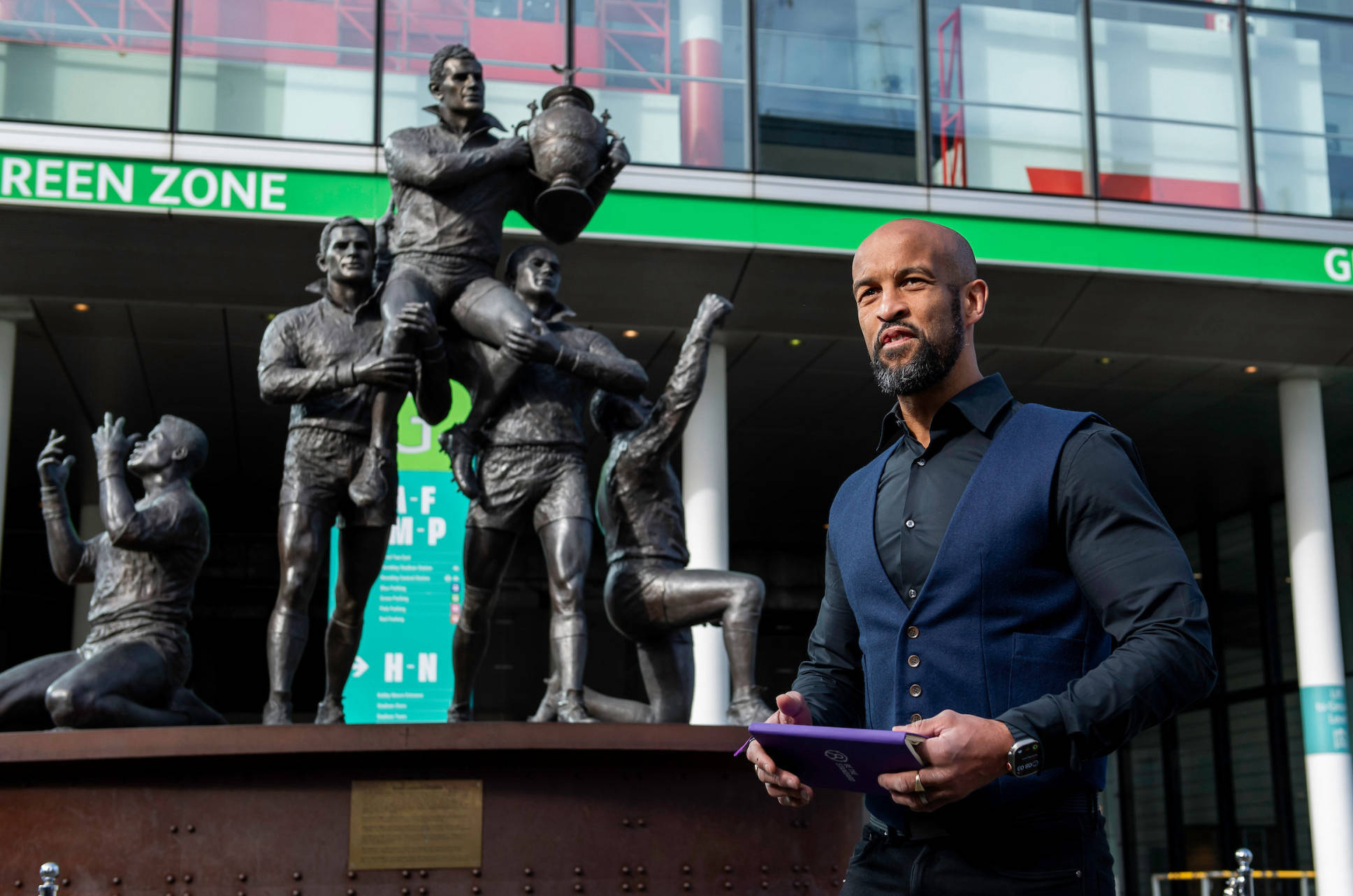
Proposals for the introduction of Our League Active, a membership participation scheme for the community game, have generated considerable debate in recent weeks. Here Sandy Lindsay MBE, one of the RFL’s Non-Executive Directors and Chair of the Community Board, explains the rationale behind the proposals – and updates on the consultation process.
Last week, along with a range of colleagues from the Rugby Football League and the RFL’s Community Board, I had the privilege of spending time with many hugely dedicated people representing the leagues and clubs of our Community Game.
These people give up their time and energy, on a voluntary basis, playing a powerful, positive role in the day to day lives of thousands of Rugby League players, from Cubs to Open Age. I was, therefore, very grateful they’d agreed to meet with us and give us their views – and those of their members – about ‘Our League Active’, the new membership programme being launched this Autumn ahead of the 2022 Community RL season.
We were, of course, aware that this was never going to be a popular or easy message to land. It’s well known, in every walk of life, that people who have had something free of charge tend to underestimate or overlook its value.
So most of these representatives came to the meetings with the unhappy cries of concern of their members ringing in their ears.
What I was pleased to see, however, was that, through often lively, honest and open discourse, we were able to give each other’s views an airing and, in every case, come to the conclusion that, while this is not going to be welcomed by all, it is necessary.
This does not mean the rest of the journey is going to be easy. We still have many discussions to have and many decisions to make about the HOW but I do feel that we’ve now at least agreed on the WHY. We at the RFL still have some work to do, however – based on the feedback – to communicate more detail about how the money is to be used and what we do on behalf of the Community Game.
And we are happy and confident to do that as one of the things this whole process has shown to me is that we, at the RFL need to get better at talking about what we do.
I will be honest with you, however, and say that there are some people in our sport who will never be fans of the RFL. There’s too much history and there are some who do not – sadly – want to see that today’s RFL is a whole new organisation. I wish this were not true and I wish I could change it but I might have to accept defeat on that one which is sad because, genuinely, I’ve worked with organisations of all shapes and sizes, private, public, third sector etc and I’ve honestly never worked with a more dedicated and passionate group of people than those at the RFL.
There was a volunteer on one of our calls who stated: “The RFL does nothing for us!” and when I said that must be very hard to hear for people like Kelly Barrett, the Head of Delivery of our Community competitions (who was on the call), the same person said: “Oh no, Kelly’s great – we couldn’t do without her!”
And this is one of our challenges – people work with the RFL literally seven days a week and don’t realise they’re doing so, maybe because the teams are such a part of the fabric of the game? But these dedicated people need salaries and offices (eventually!) and there are huge overheads to running the game and making it safe, legal and compliant for our players of all ages.
The decision to introduce a membership programme to the game of Rugby League has been discussed and delayed for many years. We know that our communities are some of the most deprived in our country and that the work we do through the RFL, the leagues and the clubs makes a massive difference to them every day. But we also know that it costs £700,000 a year to run the Community Game alongside the leagues and the clubs and that we’ve historically been supported by excellent partnerships with Sport England and other Government bodies, who have been saying for many years – quite rightly – that we, like all sports, need to become more self-sustaining. We’re sure they will continue to fund ‘additionality’ and growth but the core costs of the game need to be funded by the people who enjoy it.
England Boxing has recently gone through exactly the same process. The sport sits in similar communities to us – some of the most challenging neighbourhoods in the most difficult towns and cities – but, although the initial reaction was the same as in our sport, the prophesies of doom have not come to fruition. In fact, we’re told, their Community Game is seeing increasedparticipation and growth as a result of having more funding.
One of the group chairs this week listened to everyone’s views and summed up by saying: “The way I see it is: we’re always talking about having no money in our sport and, as the saying goes, if we always do what we’ve always done, we’ll always get what we’ve always got. This is a chance to change things and I’d say we give it a go!”
Which is 100% right because what we’re hoping is that, like boxing, this will be a game changer. If we get this right – and we will – we’re hoping to not only cover the core costs but also have surplus that we can spend on the Community Game. We absolutely guarantee that this is where the funds will be spent. Maybe a regional development officer to help grow participation, maybe a commercial manager to bring even more money into the game and support clubs to grow their own commercials, maybe a ‘Created By’ type of fund which clubs can pitch for funds from. This can all be agreed once this programme is up and running.
Many have said this is a tick box exercise and that we’re not really listening. This is not true. Already, based on feedback from leagues and clubs, we have agreed to reduce the amount payable by under 11s to £12 per year, up to 18s will be £18 and open age £25 (oh and Cubs will be free). So the maximum anyone will pay is the equivalent of around £2 per month. From our research (and anyone who’s tried to do this will know it’s not as easy as it sounds!) it will be, by some margin, one of the lowest memberships in sport.
We are also looking – based on feedback – at a family membership, whereby three or more people in the same family will receive a discount. We are struggling to make this work for this year so it may have to wait but we’ve not given up yet and we hope that the reduction in the under 11s fee will help alleviate some concerns in the meantime.
Having spent a lot of time meeting people and receiving feedback and ideas, we will be having a discussion this week to agree what our next steps are. There is concern about coaches having to pay a membership so this will be a topic for conversation. And there are lots of different thoughts on whether the fees should be paid directly to the RFL or via/by clubs.
We are genuinely listening – this membership does have to happen and it has to happen in time for next year’s playing season, but we’re still listening about how - so get in touch, give us your views and your ideas, and, together, we’ll grow the game we all love for everyone involved.
Sandy Lindsay MBE, RFL Non-Executive Director and Chair, RFL Community Board




